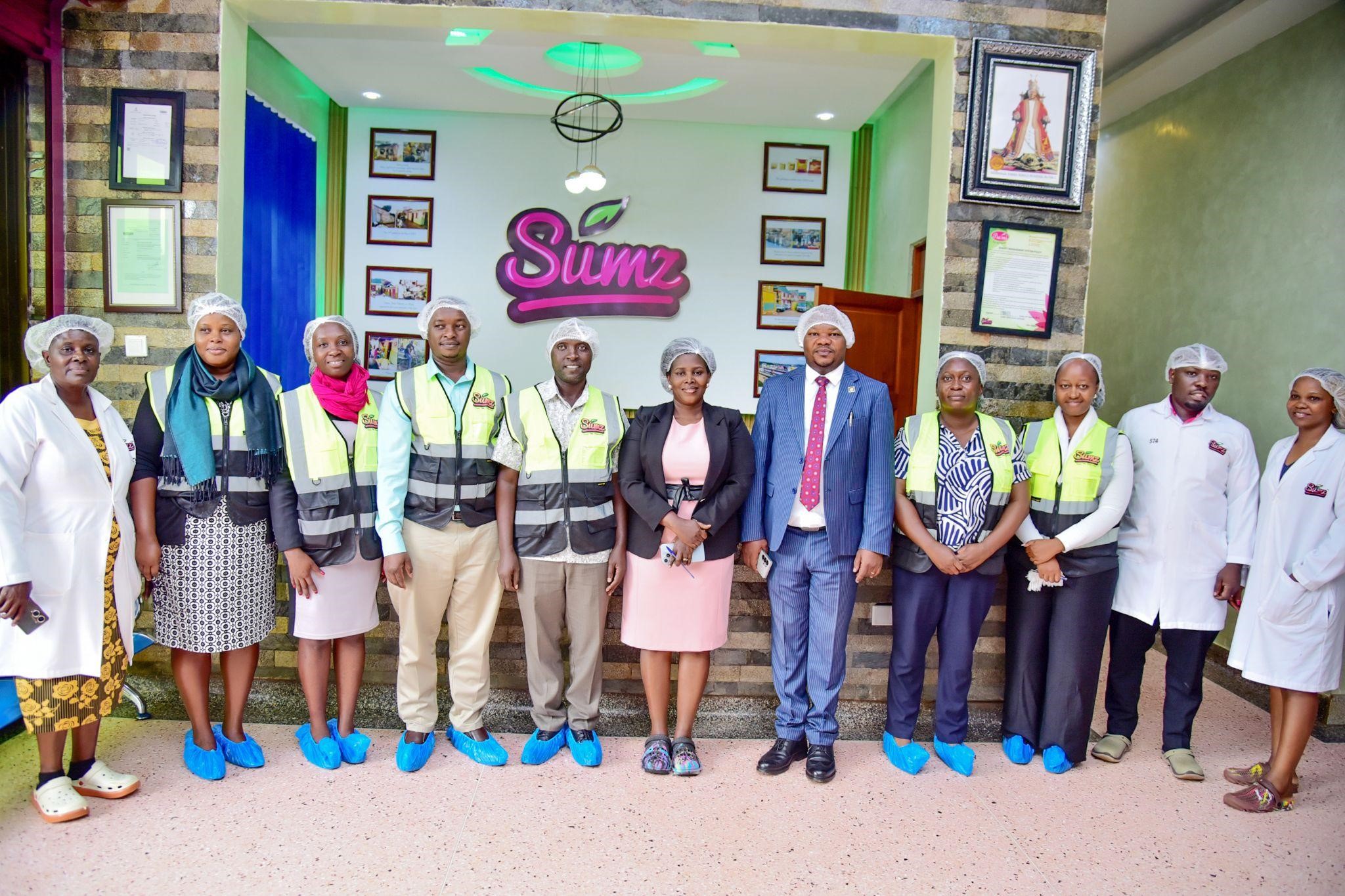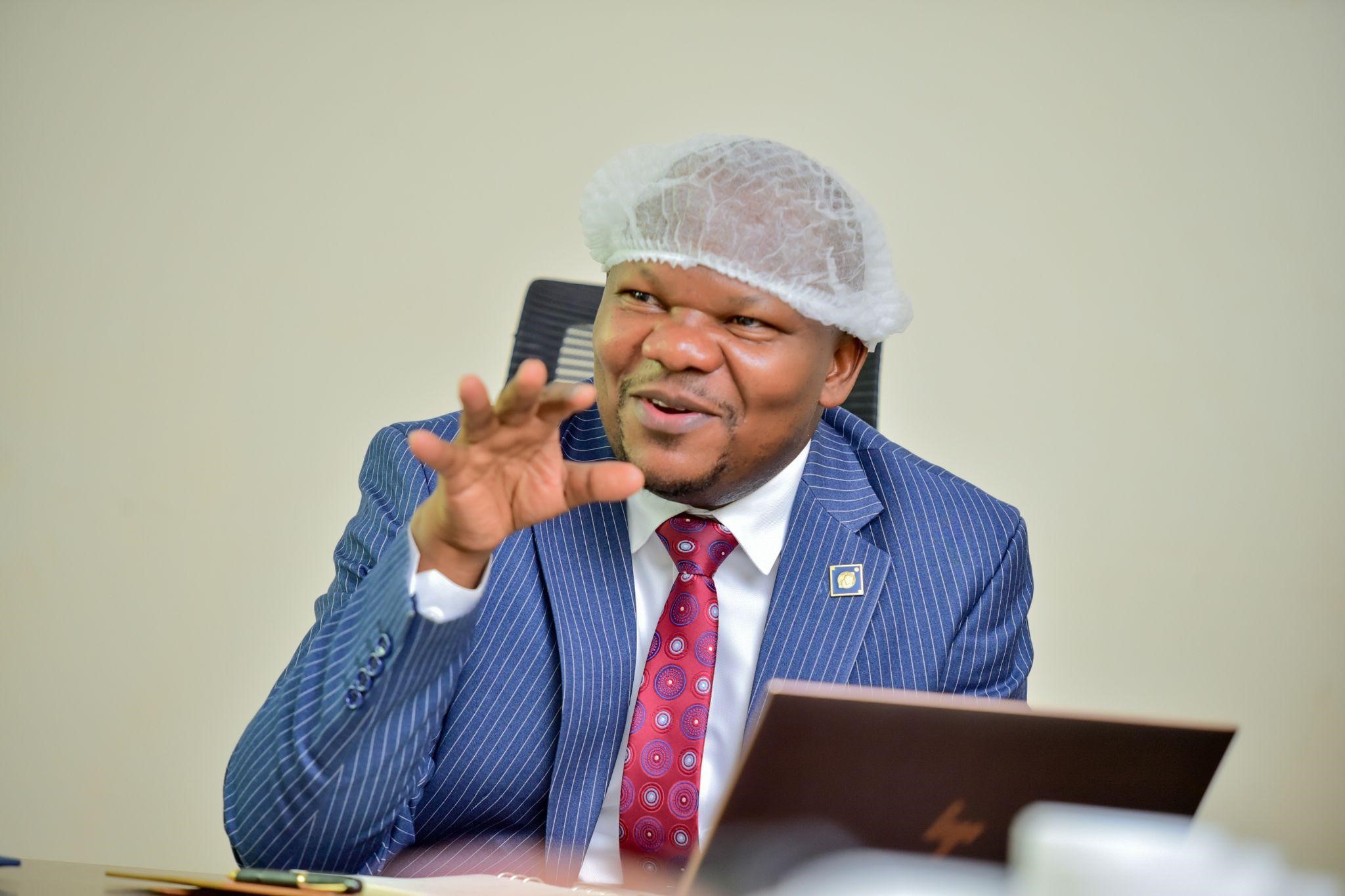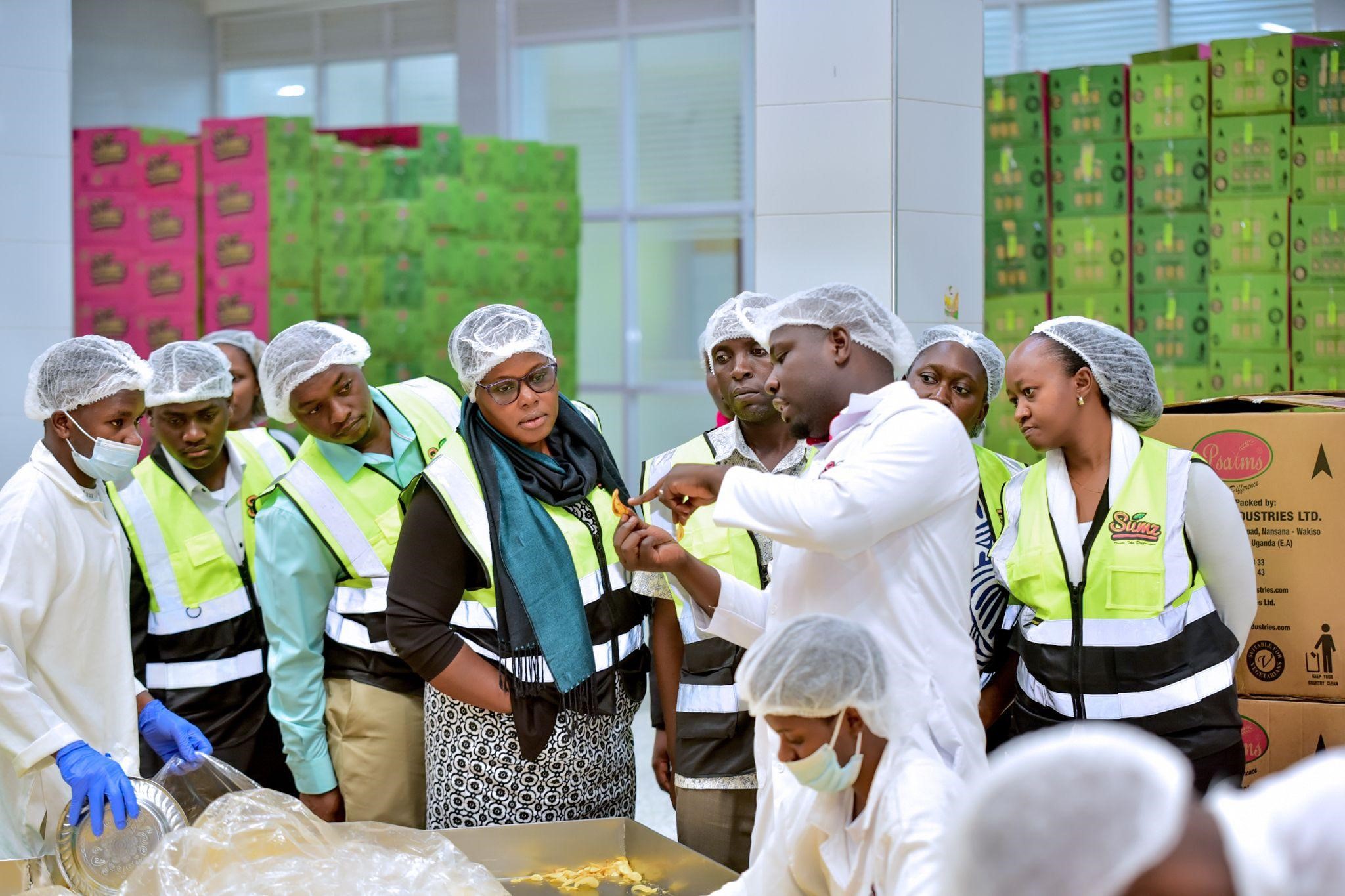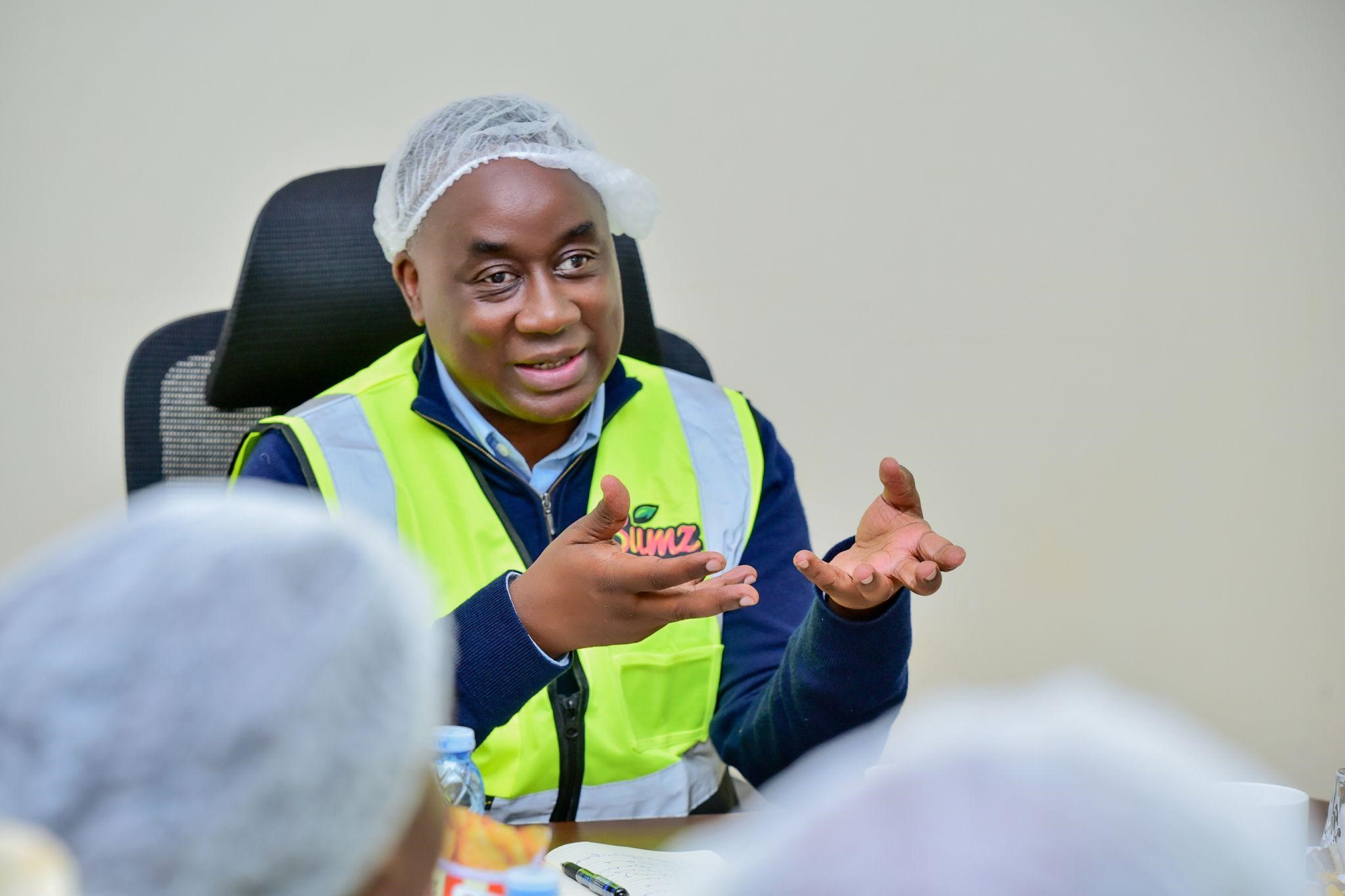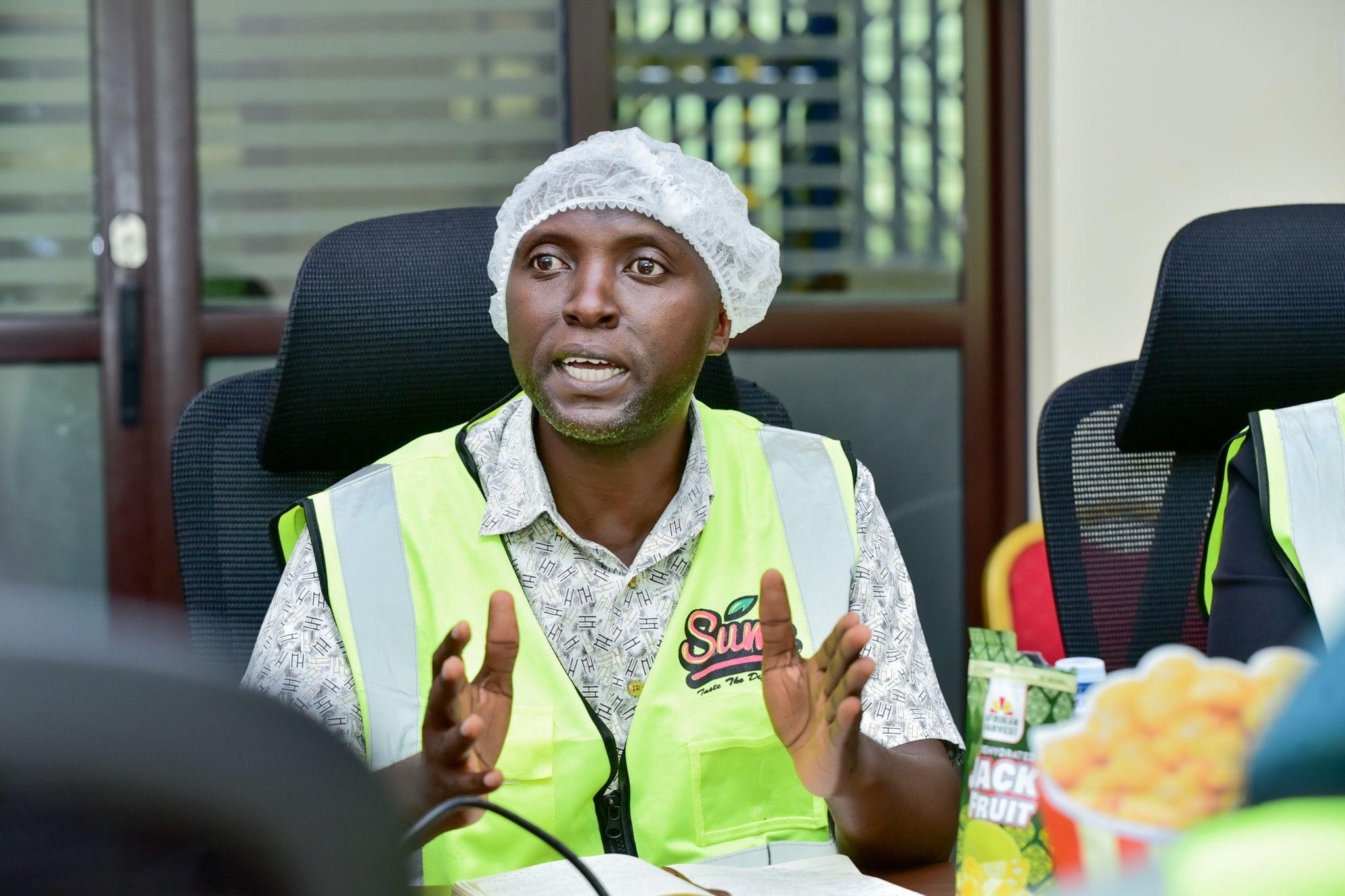- Students tipped on becoming better breeders back home
- DGRT proposes turning MUARIK into a graduate training school for Mak
Makerere University Deputy Vice Chancellor in charge of Academic Affairs (DVCAA) Dr. Ernest Okello Ogwang has officially welcomed the new MSc and PhD students admitted under the Regional Centre for Crop Improvement (MaRCCI).
This was during the second day of orientation on Tuesday, 11th September 2018 where over 40 students from 13 sub-Saharan African countries are being inducted at the Continuing Agricultural Education centre (CAEC) at the University Research Institute in Kabanyolo.
The three day orientation concludes on Thurday, 13th September 2018 with briefing from Bankers and Insurers, a familiarization tour of the Makerere University main campus and briefing on programme activities and expectations from MaRCCI Administrative staff.

In his speech, Dr. Okello Ogwang commended the program for taking into account the gender aspect. The 2018 intake consists of 15 PhD students (8 females and 7 males) and over 20 MSc. students (12 females were present), representing a 1:1 ratio.
Dr. Okello Ogwang commended MaRCCI upon transforming itself from the Makerere Regional Graduate programmes in plant breeding initiated in the Department of Agricultural Production with support from RUFORUM in 2008.
He further acknowledged the 127 MSc and 57 PhD students trained since the programme was initiated, saying that as a result, Makerere has attained global reputation for the quality of its graduates who have stayed in the region applying the skills they have acquired.
“Plant Breeding is a discipline that has tremendous potential to improve the food and nutritional security and livelihoods of small scale farmers who represent 70% of the population of Uganda and sub-Saharan Africa”, Ogwang noted.

He said Plant Breeding and Seed Systems (PBSS) and Plant Breeding and Biotechnology (PBB) training operates as a model programme – designed to produce fit-for purpose, market ready graduates who have the competencies and mentality to develop crop varieties that are responsive to the value chain needs, including producers, processors and consumers.
Dr. Ogwang noted that in order to address significant problems in crop production, the centre has exemplary cooperation with NARO and other national, regional and global institutes and universities. He expressed happiness that the management of the center is overseen by an advisory board of world class scientists, educators and representatives of commercial seed companies.
Similarly he added that in order to deliver exceptional quality, the programme benefits from highly trained young scientists as well as regional and international experts such as Prof. Albert Chiteka.
Dr. Ogwang said in support of global academic excellence in the applied sciences, Makerere University administration fully backs the centre’s model programme through which the university can adopt progressive approaches.

“We pledge our support to assist the centre overcome the challenges of inefficient administrative processes, uptake of staff into regular Makerere positions and operational sustainability.
We are indeed eager to see the centre continue to expand in scope and quality and confident that it can serve as model for other programmes, as we pursue the goal of becoming a progressive international, research-led university producing real innovations to solve national and regional problems”. Dr. Ogwang promised.
In his welcome remarks, Prof. Bernard Bashaasha, the Principal, College of Agricultural and Environmental Sciences (CAES) represented by his Deputy Dr. Gorettie Nabanoga welcomed students to CAES and Uganda.
Nabanoga was grateful for the program’s culturally diverse intake, describing Uganda as a beautiful country where students will enjoy their stay and studies.

“Count yourselves privileged for having chosen Makerere so as to be part of the team developing the world in terms of food. You have the best course at heart and that is the reason you chose Uganda. Makerere sets the scene for you to become the greatest leaders, plant breeders and agriculturalists”, Nabanoga told students, adding that:
“This is the best place you can ever find. It is by design that you are in Kabanyolo, a stone’s throw away from a leading research centre. We are blessed to have the Director General NARO here today, a sign of our warm collaboration”.
Dr. Nabanoga applauded the program choice of 50% gender distribution, saying that any successful intervention must put women at the forefront to realize success. She reassured students that despite the fact that they are going to study from Kabanyolo, they are part of Makerere and would have some time to spend on the main campus to interact with other students.
“Our role is to make it possible for you to go through the academics. MaRCCI is a centre of excellence and the programmes are designed by the Department of Agricultural Production where you belong, which falls under the School of Agricultural Sciences and then the College of Agricultural and Environmental Sciences.

As you stay at Kabanyolo, you will interact with research stations, learn the challenges we have, bring your wealth of experience, share and find solutions for a better Africa”. Nabanoga implored.
“We are training you to surmount challenges and to advise management on what can be done. Be very proactive in solving problems and be sure to communicate because our role is to make your stay comfortable, “the Deputy Principal advised.
Nabanoga however told students that little can be adjusted in some areas like stipend and allocations for research because these were terms and conditions they appended signatures to upon admission.
She said the University’s role is to ensure that the teaching is done and supervisors assigned to the students. The Deputy Principal advised students to fulfill their roles, balance their time and finish on time.

She also advised foreign students to establish networks with local students for guidance and to enable them cope with the social and academic work.
Dr. Nabanoga further implored students to be good flag bearers of their countries and to avoid leaving bad memories. She thanked DVCAA for the support extended from the University Administration, NARO, Dr. Richard Edema and other staff for crafting and working so hard to put the program together.
The Deputy Director General, National Agriculture Research Organisation (NARO) Dr. Yona Baguma stressed that in order to have a functional breeding program, there must be a good human resource base which must have the capacity to manage data, be able to do quality phenotyping, do quality genotyping and also have the capacity to create a clear and functional breeding pipeline.
“By the breeding pipeline, we mean that if you are breeding for drought adaptation, you must know what it takes you from the point you select the parents through crossing them, up to the time when you get the product that is adapted to drought, “he said.

He pointed out that at present time, if you are breeding for resistance to fall army worm; the pest that is ravaging the maize, it means that from the time you select the parents, make the crosses and then select the best candidates for resistance or tolerance to the pest.
Dr. Baguma also the Board Chair MaRCCI noted that the best functional breeding program must have the capacity to design products that are suited to different industries for food, feed and for nonfood applications.
He observed that most breeding programs in Africa today have a lot of challenges ranging from low human capacity which require continued training of more plant breeders.
“They are very low in terms of funding and above all they are low in terms of their capacity to manage quality data that can be used for reference in future, you are on board because you have the capacity to manage a breeding program, without data you will walk along streets well knowing that you are not breeders”, he added.

He stated that MaRRCI has got a good international rating noting that the students are lucky to be part of it to get knowledge and other tips which can help their respective countries get to another level.
Baguma applauded Dr. Edema and his Deputy Prof. Paul Gibson for writing the proposal which materialized into a centre of excellence. He told the students not to focus on the infrastructure but on the academics noting that while he was at Makerere in 1986, the whole research institute was filled with bushes.
“It was emerging out of the bush war and it was the dining and the lecture room that were visible, we persevered and studied and changed its look. This centre which stemmed from a small meeting at royal suites where the proposal was written, has given it a different look, “he revealed.
He challenged the students to understand how to do things that will benefit their countries, saying that a degree that is not beneficial to society is as good as nothing.

“You must know from today that if you fail to learn, you will never learn. You need to create demand around yourself because if you miss out on this, you will be like any other person. Commit time and put away all the destructions surrounding you.
Africa is looking for high quality experienced experts and if you are the leaders of tomorrow, you need to emerge as experts, “Dr. Baguma encouraged.
He expressed pride at being associated with NARO which has the best human resource base with the highest number of PhDs.
The Deputy Director, Directorate of Research and Graduate Training (DRGT) Assoc. Prof. David Okello Owiny hailed Dr. Edema and Prof. Gibson for the initiative and keeping the fire burning. He also congratulated students upon getting the award to study under MaRCCI.

Owiny implored students to be mindful of what they want to achieve at the end and advised them to register so as to qualify as students of Makerere. He however decried the delaying tactics by some supervisors who make it hard for students to complete on time and advocated for expansion of the scope of supervision to ensure timely graduation by bringing on board expertise from private universities.
Dr. Owinyi informed students that teaching; supervision and examination will be handled by the CAES and NARO. He implored program directors not to restrict supervision only to crop scientists, saying supervision can be done by veterinarians especially in aspect of technology.
Advising students on their social life, Dr. Owinyi implored those with families to keep in touch so as to avoid crumbling, “find a way of killing boredom by visiting friend’s functions, engaging in church activities and playing games.”
He reported that in the January 2017 Graduation, CAES presented 18 PhD students out of the 72 university wide number.

“Last year, CAES was second to the College of Health Sciences which had 19 PhDs. Makerere is moving to a research-led university and this means an increase in our graduate output and number of foreign students and impact, number of staff and research output and publications.
Dr. Owiny however said the university should know that there other new entrants in graduate output including MUBS which is set to present its highest number of PhDs from 1 – 11 at the next graduation ceremony.
He attributed this to their strategy of having a special school to train graduates. He proposed the need for Makerere to turn MUARIK into a school for graduate training for all university units.
“MUARIK has a good environment. Why not turn this research institute into a graduate school for all MSc and PhD programmes. MUBS has succeeded by creating such a school headed by the Dean.
This will strengthen the college because we already have the basic infrastructure.

Given the capacity of 500 graduate students who cannot be handled at the main campus, yet most of the research is done at Kabanyolo, this can easily increase on the number of students recruited.
It will also increase the research output in terms of publications and graduate students who will complete and in turn increase the visibility of Makerere University. This in one way answers the quest for Makerere to be a research led university.
What we need here are student’s hostels and university buses running say in two hour intervals so that if you are a lecturer, you know and plan accordingly.
Let’s make the lives of international students easy,” Dr. Owiny suggested.
He also implored students to avoid dirty politics and troublesome spots that may land them into problems and always seek advice in case of challenges.
Article Compiled by;
Jane Anyango and Agnes Nankebe Nantambi,
Communication Office CAES.
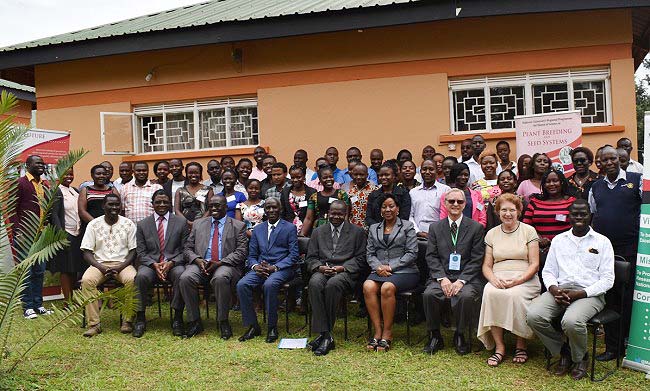

 General6 hours ago
General6 hours ago
 General5 hours ago
General5 hours ago
 Humanities & Social Sciences1 week ago
Humanities & Social Sciences1 week ago
 General1 week ago
General1 week ago
 Agriculture & Environment2 weeks ago
Agriculture & Environment2 weeks ago














